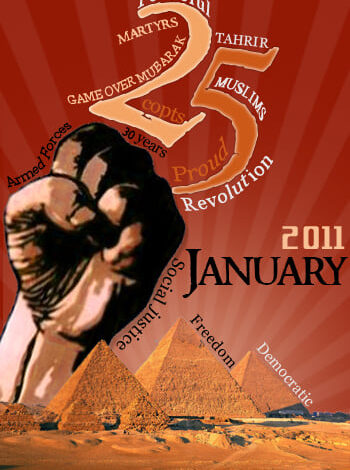
Ahmed Moustafa
In brief, the great Egyptian revolution of January 25, 2011, was primarily economic and social, especially since the first demand was “bread,” then “freedom,” then social justice. What the Mubarak period left behind, over thirty years, created a major social imbalance in the Egyptian social system, “a class representing 5% of the oligarchy” that included businessmen and the Supreme Policy Committee of the dissolved National Party, which was headed by (Gamal Mubarak). As Hosni Mubarak and his wife, Suzan Thabet, wanted to pass power on to their son in Egypt, especially after the absurd constitutional amendments in 2007.
The army’s desire and the people’s desire met to reject the inheritance of Gamal Mubarak, who represented rampant capitalism, and the Washington and London consensus behind it. Since Gamal did not serve in the Egyptian army – Mubarak was unable to provide solutions in his last days that met the demands of the people, and he was unable to solve the problem of (support) that the oligarchic class was receiving, just like the middle and poor classes. In addition to the corruption and mediation that spread, and disrupted the social justice system until now, especially in choosing those who do not deserve it for certain government jobs and certain companies, for no other reason than their closeness to people of trust in the policy committee of the dissolved party.
Unfortunately, there were some civil society organizations and some media platforms (satellite channels) that benefited from this period, just like some human rights associations in Russia and Russian satellite channels, which only played on political and civil rights. Neither civil society organizations nor this tendentious media paid attention to other rights, which are no less important, such as economic, social, environmental, and cultural rights. We have not seen a number of these associations offering alternative solutions to the economic crisis, and how it can be solved in a viable manner, or to social and cultural crises.
But the other problem is that the countries that were providing support to civil society in the world (the European Union, America, and Canada) had only political and civil rights as their agenda as if other rights had no importance. The real role of civil society, whether in Egypt or Russia, has weakened due to external factors as well.
Some of them were just a front or agreed with the regime, especially if they were strong and influential associations and were managed by the elite. Associations and the media abandoned their real role of complementing the government’s roles and raising awareness. It has become closer to the role of a political party than a civil society because exercising political rights is the mission of the political party, not civil society.
If we return to the Navalny crisis in Russia and those who supported him – and I asked a number of them – what is the alternative economic program for Navalny, through which the economic and social level of the Russian people and youth, some of whom rallied around him, can be raised at a time of the Corona pandemic crisis, which the West has not even been able to provide? Any solutions for it? Recently, the banking system and its immediate (truncated) solutions reminded me of the 2008 recession, and that in the end, the citizens will pay the bill as usual. Where are you, Navalny, in this dilemma, and where are civil society and the media globally in this dilemma?
I repeat this question as we finished the World Economic Forum in (Davos – Switzerland) several days ago, especially after hearing the testimony of some Western experts. I did not find anything new from them either, especially since the West is currently in a state of uncertainty and suffering, and the economic situation is not good, and here it is. Am I talking about the so-called first economic powers such as Germany, America, and Britain? As well as the entry of America and its failed allies into new wars, directly and indirectly, in Gaza and Yemen. And every time after the Ukraine war (Russia versus NATO), it becomes clear how weak and lying the West is, and that it is just words and no actions – no human rights – no democracy – no justice – with great double standards except for the blond citizen with colored eyes.
In the end, will we once again trust the global banking system, the plans of the World Bank, and the International Monetary Fund, which were unable to solve the world’s problems economically and were a tool for the West to subjugate countries? What is the role of civil society, the media in Egypt and Russia, and activists in this regard? What is the new global financing model that should prevail in the world currently in light of the devastating crisis? Or will we once again allow quantitative easing by printing money and the “let it pass” system that has ruined the global economy? Will people once again bear the sins of brutal neoliberalism, which is unable to solve their problems? Are we still going to adhere to the devilish words of Adam Smith regarding (individualism and liberal market) – or does the world need collective action and market control as the (socialists) stated?
To have your say..




